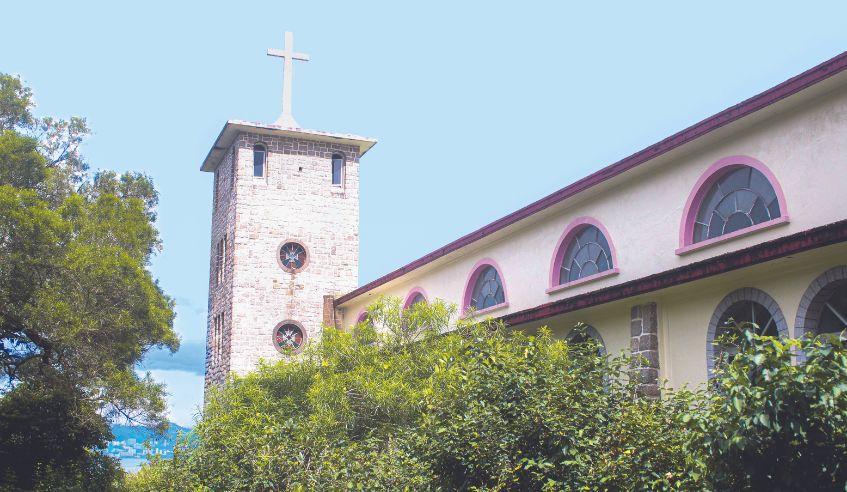![]()
![]()
![]() Reporting by Raphael Blet
Reporting by Raphael Blet
Photos by Sarin Ale
Perched on the hills of Tai Shui Hang between Mui Wo and Discovery Bay, Our Lady of Joy Abbey – also known as the Trappist Haven Monastery – is an iconic part of Hong Kong’s Roman Catholic heritage. Best known as the first production house of local milk-maker Trappist Dairy, the abbey is home to Roman Catholic monks from the Cistercian Order of the Strict Observance. Dating back to 1112 in France, this order is amongst the Church’s strictest as its name suggests.
You can hike to the abbey from Mui Wo or DB, or hop on a DB to Peng Chau ferry, some of which alight at the Trappist Haven Monastery pier. A wide, steep path leads up to the abbey, lined with 14 Stations of the Cross – a series of 14 markers portraying events in the Passion of Christ, from his condemnation by Pontius Pilate to his entombment. Walking the path, which is forested on both sides, sunlight struggles to make it through the trees. Spiritually-minded souls might describe it as a divine light; one thing is sure, it was a source of motivation to us as we began our pilgrimage.
After a 20-minute walk, we finally reached the abbey, passing through imposing gates into the flourishing courtyard. As in most Benedictine monasteries, Latin inscriptions are prevalent with the words “Pax intrantibus” (“Peace to those who enter”) inscribed above the gate. Testament to the abbey’s multicultural identity is the Chinese pagoda standing in the garden; here incense and Buddhas have been replaced by a nativity scene with Mary at the epicentre. This East and West fusion is anything but a coincidence; the abbey was founded by Chinese monks fleeing the Chinese Civil War at the end of the 1940s. Up until today, Mandarin is one of the languages used by the monks in prayer.
A bridge, arching above a calm, clear water stream, leads to the abbey’s main buildings. Frugality being a core component of monastic life, the church is a plain place of worship with white walls and only a handful of benches. Occasionally open to visitors, the church is used by the monastery’s less than 20 monks to pray.
Amongst former residents of this monastery was Nicholas Kao Se Tseien, a Fuzhou-born Chinese monk then known as the world’s oldest living priest. Born in 1897, Nicholas witnessed three centuries, 10 popes and a fair few wars. He is also believed to be the oldest man to have had a cataract operation. He passed away in 2007 and rests peacefully in the abbey’s graveyard.
In its early days, the abbey contributed to Hong Kong’s local milk-production industry through its dairy farm, known as Trappist Dairy. The company has since been sold and production moved to Yuen Long but Trappist Dairy remains amongst Hong Kong’s most reputed local businesses and its products can be found in almost every convenience store.
While the monastery’s grounds are temporarily closed to visitors due to COVID-19, its façade, courtyard and history are definitely worth a detour.
